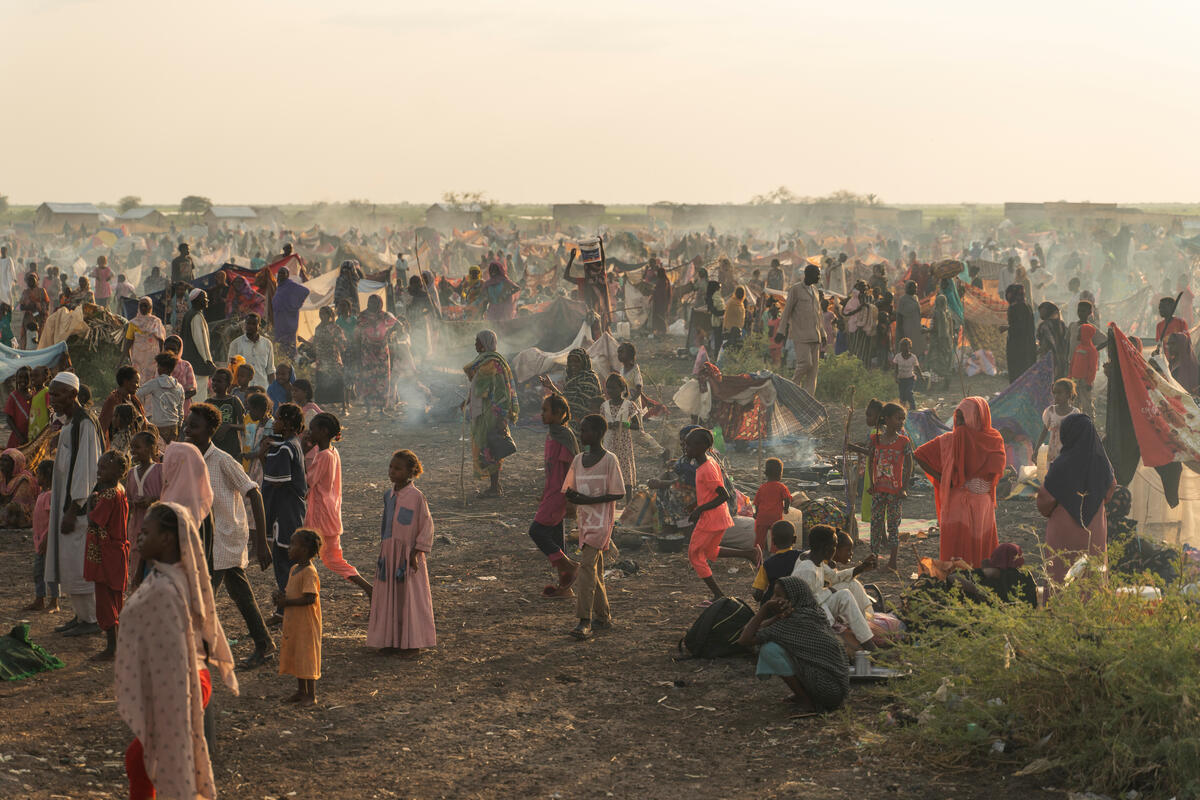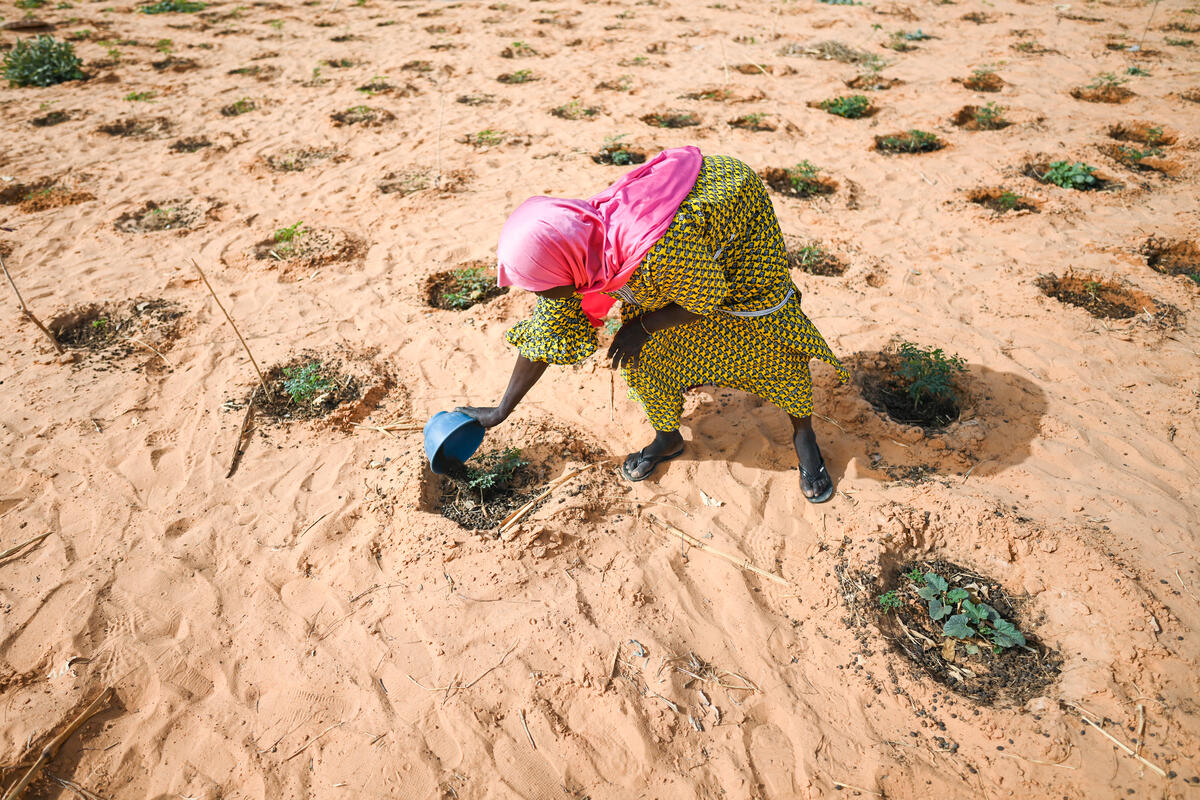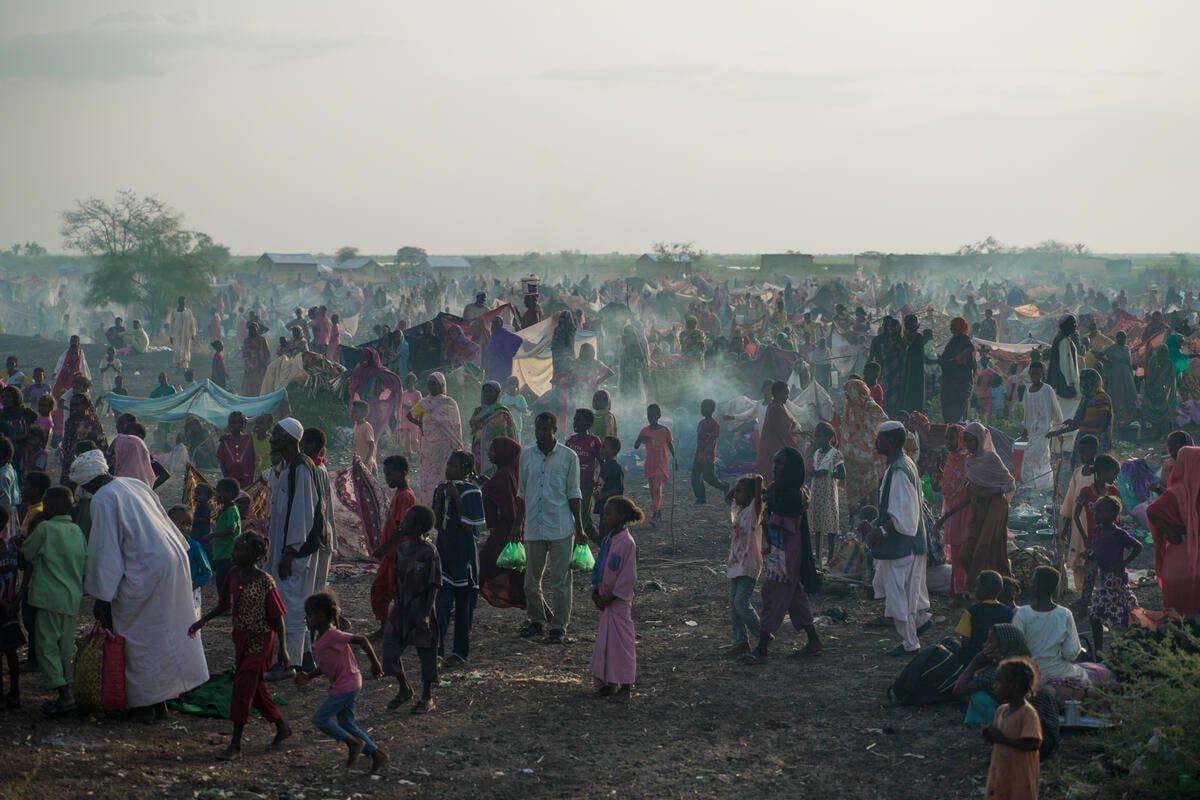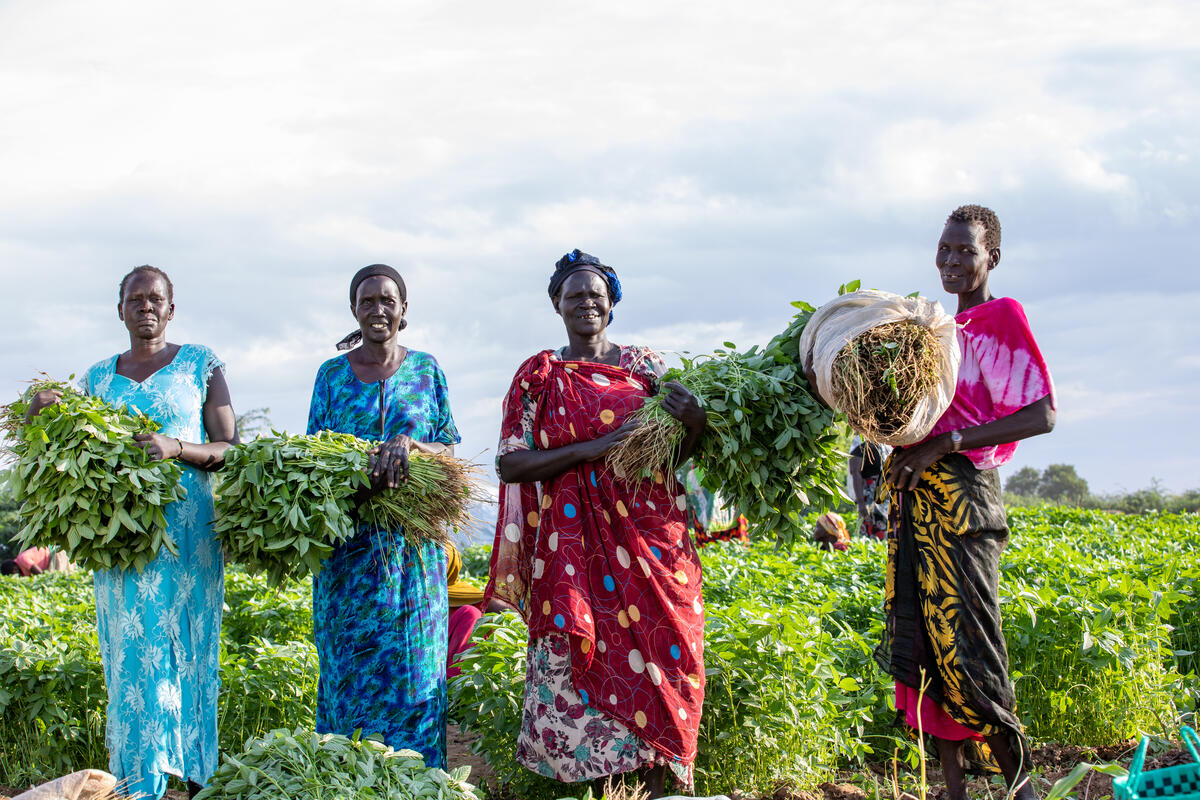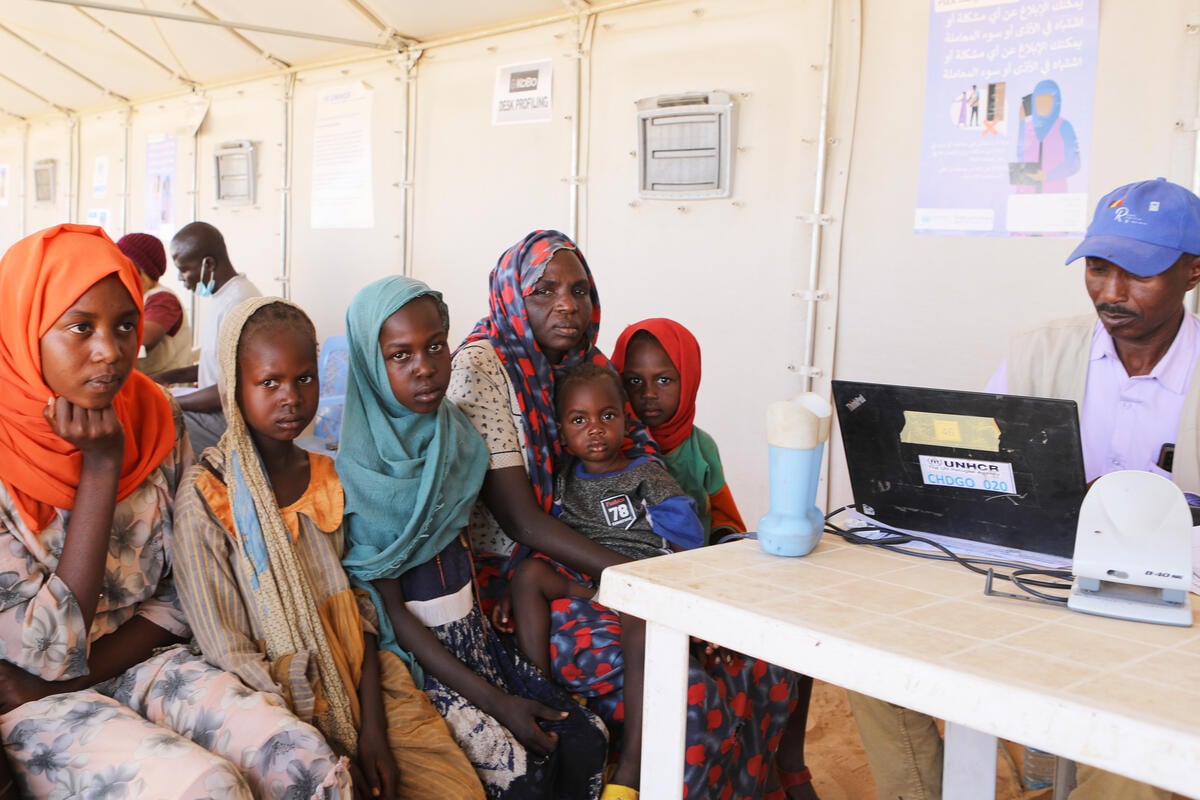Sudan: Report recommends prima facie status for Chadian arrivals in Darfur
Sudan: Report recommends prima facie status for Chadian arrivals in Darfur
UNHCR and its Sudanese governmental counterpart, the Commissioner for Refugees (COR), have recommended that thousands of new arrivals from Chad who have crossed over to Darfur in recent months be recognized by the Government of Sudan as refugees on a prima facie basis. This is the primary recommendation of a recent UNHCR-COR report. However, the report also specifies that refugee status should not be granted to active or former combatants who could be part of the group from Chad.
The joint recommendations follow months of in-depth field assessments by UNHCR and COR throughout West Darfur, and refer to interviews with newly-arrived refugees. UNHCR and COR estimate as many as 30,000 people have left Chad for Darfur in a steady flow since early this year.
The joint report states that most of the new arrivals are Arab nomadic or semi-nomadic tribes, but there are also some non-Arab tribes. Two-thirds of the group entered West Darfur around Foro Baranga, 200 km south of El Geneina, the State capital. A large number of them settled along the Wadi Azoum river bed. They come from settlements along the Chad-Sudan border, with the majority originating from the Tiero, Marena, Mayo and Awinrado areas in south-eastern Chad.
Families interviewed by the joint UNHCR and COR teams said that they left Chad after armed men wearing military uniforms entered their homes, searching for weapons, and accused villagers of supporting and participating in militia activities. People interviewed said that searches often turned violent with looting, beatings, arrests, murders and in some cases rapes committed by these groups. In addition to the brutal searches, many families said they left Chad because of the general insecurity and fighting between governmental forces and opposition groups. Most of the interviewees clearly indicated that they did not want to return to Chad because of the security situation.
UNHCR and COR undertook several assessment missions to other arrival areas such as Mukjar, Mornei, Bindinsi, Um Dukhum, El Geneina and Krenek. New arrivals in those areas mentioned various reasons for fleeing eastern Chad, including the beating to death of several men after weapons searches took place, other killings, ongoing tribal fighting, and attacks on villages. Given these conditions, we strongly believe that should this group of Chadians return home, their safety could be at stake. We therefore recommend that they be recognized as refugees as they satisfy the eligibility criteria under relevant articles of the 1969 OAU Convention and the 1974 Regulation of Asylum Act of Sudan.
Nomadic cross-border movements have existed for centuries in the region, with groups of nomads moving back and forth with their livestock seeking areas where water and grazing land are available. Some among the new arrivals mentioned scarce resources in Chad, especially water, as the main reason for leaving. However, the recent cross-border movements to Darfur are mainly motivated by insecurity in eastern Chad at the end of last year and during the first part of this year.
The UNHCR-COR report also mentions that, upon their arrival in West Darfur, some families reported having been directed by local Sudanese tribesmen or local Sudanese leaders to occupy empty land, especially in the Wadi Azoum and Wadi Saleh areas. The land belongs to people who are now displaced in camps in Darfur or refugees in eastern Chad. The report recommends that the Sudanese Government clarifies without delay land ownership issues, and ensures that owners of the land - mainly IDPs in Darfur and refugees in Chad - will be able to return to their villages of origin when they feel it is secure to do so.
The report underlines that most of the newly-arrived do not appear to be in need of urgent food or material assistance. Most of the families arrived with their livestock and bags of sorghum, and have installed their portable shelters in the various locations in West Darfur. However, we recommend that the most vulnerable people among the group be provided with a food ration. We also recommend that the Minister of Health launches a vaccination campaign for children as soon as possible. Finally the report mentions that in some cases, the nationality of newly arriving people is not clear as some claim to be Sudanese nationals who left their country in the 1980s because of a severe drought and had been since living in Chad. UNHCR and COR recommend that Sudanese authorities clarify the nationality of these people and any other groups who do not originate from Chad or Sudan.

